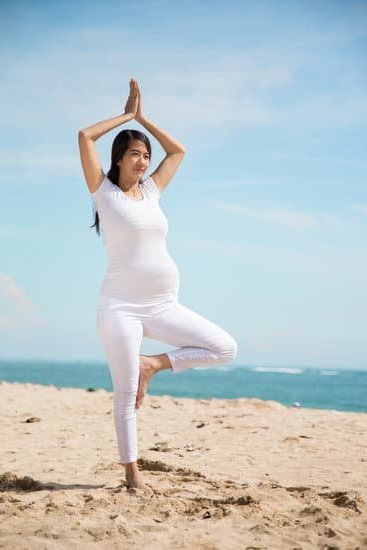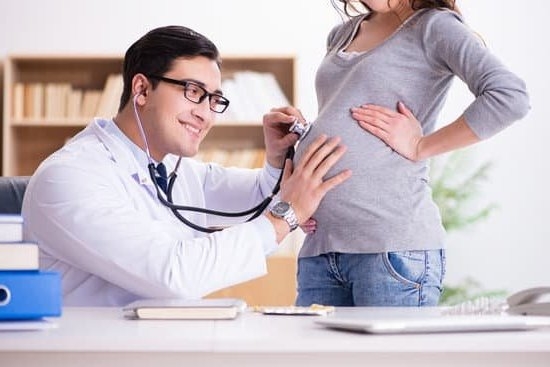The ongoing Covid-19 pandemic has raised concerns about its potential impact on various aspects of health, including pregnancy. Pregnant women may have questions and worries about how the virus could affect them and their unborn babies. In this article, we delve into the question, “Does Covid Affect Pregnancy,” exploring the latest research findings, statistics, risk factors, symptoms, complications, treatment options, and prevention strategies.
As researchers continue to study the effects of Covid-19 on pregnancy, certain patterns and trends are emerging. Understanding these patterns can help healthcare professionals provide better care to pregnant women during this challenging time. From preterm birth to maternal complications, it is crucial to explore all facets of how Covid-19 interacts with pregnancy to develop effective preventive measures and treatment protocols.
In the following sections, we will examine the existing knowledge on Covid-19 and its implications for pregnant women. From statistical data to real-life case studies, this comprehensive overview aims to equip expecting mothers with the information they need to navigate their pregnancies safely amidst the pandemic. By shedding light on this topic, we strive to empower pregnant women with valuable insights so they can make informed decisions and prioritize their health and well-being during these uncertain times.
What We Know So Far
During the ongoing Covid-19 pandemic, one of the pressing concerns for many is understanding how the virus affects pregnancy. Research and studies have provided valuable insights into the impact of Covid-19 on pregnant women and their babies. Here are some key statistics and findings based on current knowledge:
- According to the Centers for Disease Control and Prevention (CDC), pregnant women are at an increased risk of severe illness from Covid-19 compared to non-pregnant individuals.
- A study published in the American Journal of Obstetrics & Gynecology found that pregnant women with Covid-19 are more likely to be hospitalized, admitted to the intensive care unit (ICU), or require mechanical ventilation.
- Research also suggests that pregnant women with underlying health conditions, such as obesity, diabetes, or hypertension, may face a higher risk of complications from Covid-19.
Understanding these statistics is crucial in helping healthcare providers tailor their approach in caring for pregnant patients during this challenging time. By staying informed about the latest research findings, healthcare professionals can provide better guidance and support to pregnant women who might be concerned about their health and that of their unborn child.
It is important to note that while there is still much to learn about how Covid-19 affects pregnancy, healthcare providers recommend that pregnant women take precautions to reduce their risk of exposure to the virus. This includes following public health guidelines such as wearing masks, practicing social distancing, washing hands frequently, and avoiding large gatherings.
Additionally, getting vaccinated against Covid-19 has been shown to be safe and effective in protecting both pregnant women and their babies from severe illness caused by the virus.
Risk Factors
The impact of COVID-19 on pregnancy has been a topic of concern and interest since the beginning of the pandemic. Many pregnant women have wondered if they are at a higher risk of contracting the virus or experiencing severe illness compared to the general population.
While research is ongoing, studies have shown that pregnant women do not necessarily have a higher risk of getting infected with COVID-19 than the general public. However, pregnant women who contract the virus can experience more severe complications.
According to the Centers for Disease Control and Prevention (CDC), pregnant women could be at an increased risk for severe illness from COVID-19 when compared to non-pregnant women. Factors that may increase this risk include advanced maternal age, obesity, underlying health conditions such as diabetes or high blood pressure, and being in the third trimester of pregnancy.
Furthermore, it is crucial for pregnant women to take extra precautions to minimize their exposure to the virus and protect themselves and their unborn babies.
Research also suggests that pregnant women with COVID-19 are more likely to require intensive care unit admission and invasive ventilation compared to non-pregnant women with COVID-19. These findings highlight the importance of vigilance among pregnant individuals during the pandemic. It is recommended that pregnant women discuss their individual risk factors and concerns with their healthcare providers to ensure proper monitoring and management throughout their pregnancies.
| Risk Factors | Impact |
|---|---|
| Advanced maternal age | Potential increased risk for severe illness from COVID-19 |
| Obesity | Linked to higher likelihood of requiring intensive care due to COVID-19 |
| Underlying health conditions | Conditions like diabetes or high blood pressure may pose additional risks during pregnancy with COVID-19 |
Symptoms in Pregnant Women
The impact of Covid-19 on pregnancy has been a significant concern since the beginning of the pandemic. Many pregnant women wonder how the virus could affect them and their developing babies. The question “does Covid affect pregnancy” lingers as researchers and healthcare professionals work tirelessly to understand the implications of the virus on expectant mothers. While there is still much to learn, several studies have shed light on the symptoms experienced by pregnant women with Covid-19.
According to current research, pregnant women with Covid-19 may experience symptoms similar to those in the general population, such as fever, cough, shortness of breath, fatigue, body aches, and loss of taste or smell. However, some studies suggest that pregnant women might be more likely to experience severe illness compared to non-pregnant individuals with Covid-19.
This highlights the importance of early detection and monitoring for pregnant women who suspect they have been exposed to or infected with the virus.
In addition to typical Covid-19 symptoms, pregnant women may also experience unique challenges such as increased difficulty in breathing due to changes in lung capacity caused by pregnancy. It is crucial for healthcare providers to closely monitor pregnant patients with Covid-19 for any signs of respiratory distress or other complications that could potentially impact both the mother and the developing fetus.
By understanding these common symptoms and risks faced by pregnant women with Covid-19, healthcare professionals can provide appropriate care and support to ensure the best possible outcomes for both mother and baby.
| Common Symptoms in Pregnant Women With Covid-19 | Data |
|---|---|
| Fever | Experienced by majority of pregnant women with Covid-19 |
| Cough | Common symptom reported among expectant mothers with the virus |
| Shortness of breath | May be more pronounced due to changes in lung capacity during pregnancy |
Complications
During the ongoing Covid-19 pandemic, understanding the potential complications of the virus on pregnancy is crucial for expecting mothers and healthcare providers. Research has shown that pregnant women are not necessarily at a higher risk of contracting Covid-19 compared to the general population. However, if they do become infected, there are specific risks and complications that need to be considered.
Here are some potential complications of Covid-19 on pregnancy, including the risk of preterm birth:
- Preterm Birth: One of the most concerning complications of Covid-19 on pregnancy is its potential to trigger preterm labor. Some studies have shown an increased risk of preterm birth among pregnant women who have contracted the virus. This can lead to various health challenges for both the baby and mother.
- Placental Complications: There is growing evidence that Covid-19 may lead to placental abnormalities in pregnant women. These complications can affect fetal growth and development, as well as increase the risk of other pregnancy-related issues.
- Maternal Health: Pregnant women with severe cases of Covid-19 may experience more severe illness compared to non-pregnant individuals. This can result in a higher likelihood of requiring intensive care, mechanical ventilation, or other medical interventions that could impact both maternal and fetal health.
It is crucial for healthcare providers to closely monitor pregnant women who have tested positive for Covid-19 and take necessary precautions to minimize these potential complications. By staying informed about the latest research and guidelines surrounding Covid-19 and pregnancy, expecting mothers can make informed decisions about their health and well-being during this challenging time.
Treatment and Prevention
During the ongoing Covid-19 pandemic, one of the major concerns for pregnant women is how to protect themselves and their babies from the virus. With the increased risk of severe illness for pregnant women compared to their non-pregnant counterparts, it is crucial to understand the measures that can be taken to mitigate these risks.
Preventive Measures
Pregnant women should adhere to the same preventive measures recommended for the general population, such as wearing masks in public settings, frequent handwashing with soap and water or using hand sanitizer, and practicing physical distancing. Avoiding large gatherings and crowded places can also significantly reduce the risk of exposure to the virus. Additionally, pregnant women should prioritize getting vaccinated against Covid-19 to protect themselves and their unborn babies from severe illness.
Seeking Medical Care
If a pregnant woman suspects she has been exposed to Covid-19 or is experiencing symptoms such as fever, cough, or difficulty breathing, it is essential to seek medical care promptly. Healthcare providers can provide guidance on testing for Covid-19 and recommend appropriate treatment protocols if infection is confirmed. Pregnant women should not hesitate to contact their healthcare provider if they have any concerns about their health or potential exposure to the virus.
Emotional Support
The stress and anxiety related to the Covid-19 pandemic can take a toll on pregnant women’s mental health. It is important for expectant mothers to seek emotional support from loved ones, healthcare providers, or mental health professionals if needed.
Engaging in activities that promote relaxation and well-being, such as mindfulness exercises or creative hobbies, can also help alleviate some of the emotional burden associated with living through a global health crisis. By taking care of both their physical and mental well-being, pregnant women can better protect themselves and their babies from the potential impact of Covid-19 during pregnancy.
Case Studies
Jessica’s Story: Battling Covid-19 During Pregnancy
Jessica, a 34-year-old expectant mother, never imagined she would contract Covid-19 while pregnant. However, when she started experiencing symptoms such as fever, cough, and shortness of breath, she knew something was wrong. After testing positive for the virus, Jessica faced fear and uncertainty about how it might affect her pregnancy.
Despite following all the recommended safety guidelines and precautions, Jessica’s battle with Covid-19 was challenging. She had to isolate herself from her loved ones, including her partner who was also infected. The isolation took a toll on her mental health as she worried about the health of her unborn baby.
Emily’s Experience: Overcoming Covid-19 Complications During Pregnancy
Emily, a 29-year-old pregnant woman in her third trimester, faced severe complications after contracting Covid-19. She developed pneumonia and had to be hospitalized for monitoring. The thought of potentially delivering her baby prematurely added to Emily’s anxiety and stress during this difficult time.
With the help of dedicated healthcare professionals and supportive family members, Emily fought bravely against the complications brought on by Covid-19. Through careful monitoring and treatment, she eventually recovered and was able to safely deliver her baby at full term. Despite the challenges she faced, Emily’s story serves as a reminder of the resilience of pregnant women in the face of this global pandemic.
Nicole’s Journey: Navigating Post-Covid Recovery While Pregnant
Nicole, a 32-year-old woman in her second trimester, contracted Covid-19 during a family gathering without realizing it. Even after recovering from the initial illness, Nicole experienced lingering symptoms such as fatigue and shortness of breath that made her pregnancy journey more challenging than expected. With the support of her healthcare provider and loved ones, Nicole focused on self-care and rest to aid in her recovery while carrying out a healthy pregnancy.
These real-life stories highlight the diverse experiences pregnant women may have when dealing with Covid-19. Each journey is unique, but they all underscore the importance of vigilance, seeking medical care promptly if needed, and staying connected with support systems during these uncertain times.
Conclusion
In conclusion, the question “Does Covid Affect Pregnancy?” is one that continues to be explored by researchers and healthcare professionals.
While much is still being learned about the impact of Covid-19 on pregnancy, existing data suggests that pregnant women may be at a higher risk of experiencing severe illness if they contract the virus. Risk factors such as advanced maternal age, pre-existing medical conditions, and obesity can further elevate this risk, highlighting the importance of vigilance in protecting the health of both mother and baby during these challenging times.
It is crucial for pregnant women to remain informed about the symptoms of Covid-19, as they may experience common signs such as fever, cough, and shortness of breath. Seeking prompt medical attention if any concerning symptoms arise is key to ensuring timely treatment and monitoring. Additionally, potential complications such as preterm birth underscore the need for pregnant women to diligently follow public health guidelines, including practicing social distancing, wearing masks, and frequently washing hands.
As we navigate through this unprecedented global health crisis, it is essential for pregnant women to prioritize their well-being by staying up-to-date with recommendations from healthcare providers and governmental agencies. By taking proactive measures to protect themselves and their unborn child from Covid-19, pregnant women can mitigate risks and strive towards a healthy pregnancy despite the challenges posed by the ongoing pandemic.
Remember: knowledge is power, so stay informed and take necessary precautions for a safer and healthier pregnancy journey.
Frequently Asked Questions
Can Covid in Pregnancy Affect the Baby?
Covid in pregnancy can potentially affect the baby, although research is ongoing to fully understand the impact. Some studies suggest a slightly increased risk of premature birth or other complications for babies born to mothers with Covid.
What Can a Pregnant Woman Take for COVID-19?
When it comes to what a pregnant woman can take for Covid-19, it is essential for her to consult with healthcare professionals for guidance and recommendations. Generally, treatments may focus on managing symptoms and supporting overall health during this critical time.
Does COVID Cause Birth Defects?
While there is no conclusive evidence that Covid causes birth defects, it is crucial for pregnant women to take necessary precautions to protect themselves and their unborn child from potential harm. Following safety guidelines and seeking medical advice are key in addressing any concerns about Covid and its impact on pregnancy.

Welcome to my fertility blog. This is a space where I will be sharing my experiences as I navigate through the world of fertility treatments, as well as provide information and resources about fertility and pregnancy.





